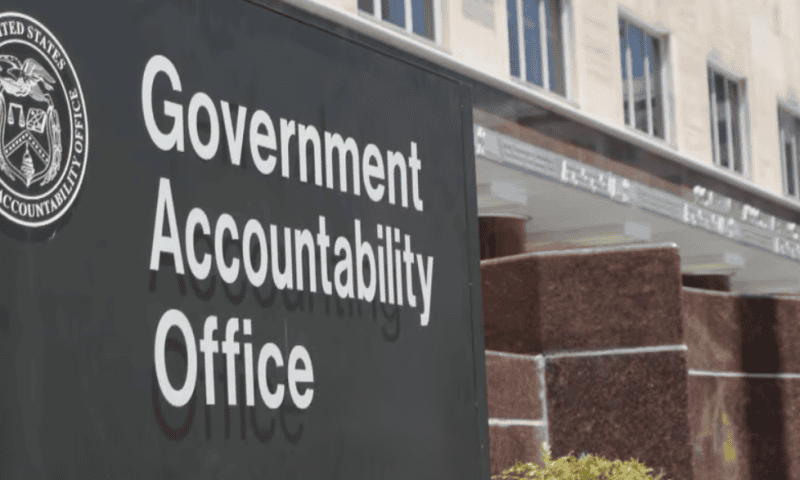The Department of Health and Human Services’ (HHS’) new biomedical research arm, the Advanced Research Projects Agency for Health (ARPA-H), is behind on finalizing a plan to avoid unnecessary research duplication with other government health agencies, despite already awarding funds.
ARPA-H was established by Congress in 2022 with the goal of translating public medical research conducted by agencies like the National Institutes of Health (NIH) into treatments and therapies developed by private companies in the pharmaceutical and biotech industry. In an FAQ, the agency describes the proposals funded by the NIH as “curiosity-driven,” while those funded by ARPA-H are “use-driven.”
It’s a fine line, and, according to a new report published Feb. 29 by the U.S. Government Accountability Office (GAO), ARPA-H hasn’t yet set up a plan to avoid duplication.
The GAO defines “research duplication” as when two or more agencies “are engaged in the same activities or provide the same services to the same beneficiaries.” There are times when other HHS agencies might need to fund the same type of projects as ARPA-H, like when it’s necessary to confirm results, the GAO noted in the report.
But, in other cases, doing so would be a waste of time and money, creating a need for oversight to ensure that ARPA-H research is “free of unnecessary duplication,” as the GAO put it. To do that, Congress established the ARPA-H Interagency Advisory Committee, a group of representatives from eight federal agencies who coordinate research efforts, when the agency was founded.
The committee met for the first time in November 2023, but, as of December 2023, still had not finalized a charter, the GAO found. ARPA-H responded to a draft of the GAO report in February 2024 with an updated charter, but, according to GAO, it was missing documentation on how exactly advisory committee members would be tasked with collaborating and sharing information. It also hadn’t been dated or signed.
“ARPA-H officials told GAO that the committee will serve as a forum to identify and address potential research duplication between ARPA-H and these agencies,” the GAO said in the report. “However, the committee’s draft charter does not mention how members would collaborate to help ARPA-H identify and avoid funding research duplication.”
Meanwhile, ARPA-H awarded $387 million on 22 projects between August 2023 and December 2023, meaning that the agency had begun earmarking funds before the advisory committee officially had its ducks in a row.
“While ARPA-H is intended to complement NIH’s existing research portfolio, its funding of research projects in common fields of science has the potential to duplicate funding from elsewhere in NIH and from other HHS agencies conducting biomedical research,” GAO said in the report, later adding that “avoiding and eliminating unnecessarily overlapping and duplicative research can be a means of saving taxpayer dollars and generating more useful scientific outputs.”
GAO’s official recommendation was that the director of ARPA-H should finalize the interagency charter. HHS neither agreed nor disagreed with the recommendation, the report said.
In an emailed response to FBR’s request for comment, ARPA-H said it is “working closely with the rest of the health ecosystem to ensure our investments are impactful and unique.” The agency also pointed out that the GAO said as much on page 24 of its report, which states, “ARPA-H has established practices to identify and avoid unnecessary duplication. It has also identified various challenges including identifying projects funded by other HHS agencies.”
ARPA-H added the Public Health Service Act, the statute that established the agency, said the Interagency Advisory Committee was for coordinating efforts and advising tasks about specific projects and its overall direction. Preventing duplication efforts “was not part of the committee’s scope,” the agency said.
“[H]owever, GAO inquired about additional details on addressing deconflicting research,” ARPA-H said in the statement. “ARPA-H has made good faith efforts to share our best practices with GAO, and ARPA-H agrees that it is paramount that we avoid unnecessary research not just at ARPA-H but across the entire biomedical research enterprise.” The agency also said that it has been engaging with all advisory committee members and working with employees at all levels of U.S. government organizations “to ensure that we are deconflicting the work prior to any project or program launch.”
“Further, these assessments are not made as a single snapshot in time but will continue throughout all projects and funding to ensure the best use of government funds,” the agency said. “ARPA-H has received and reviewed the report and as required, will respond with a written statement of actions by the deadline.”
As of February 2024, ARPA-H has put funds toward Every Cure’s machine learning and AI platform for drug repurposing, Thymmune Therapeutics’ stem-cell-based thymus rejuvenation, and 3D-printed organ development at Stanford University, among other projects.

